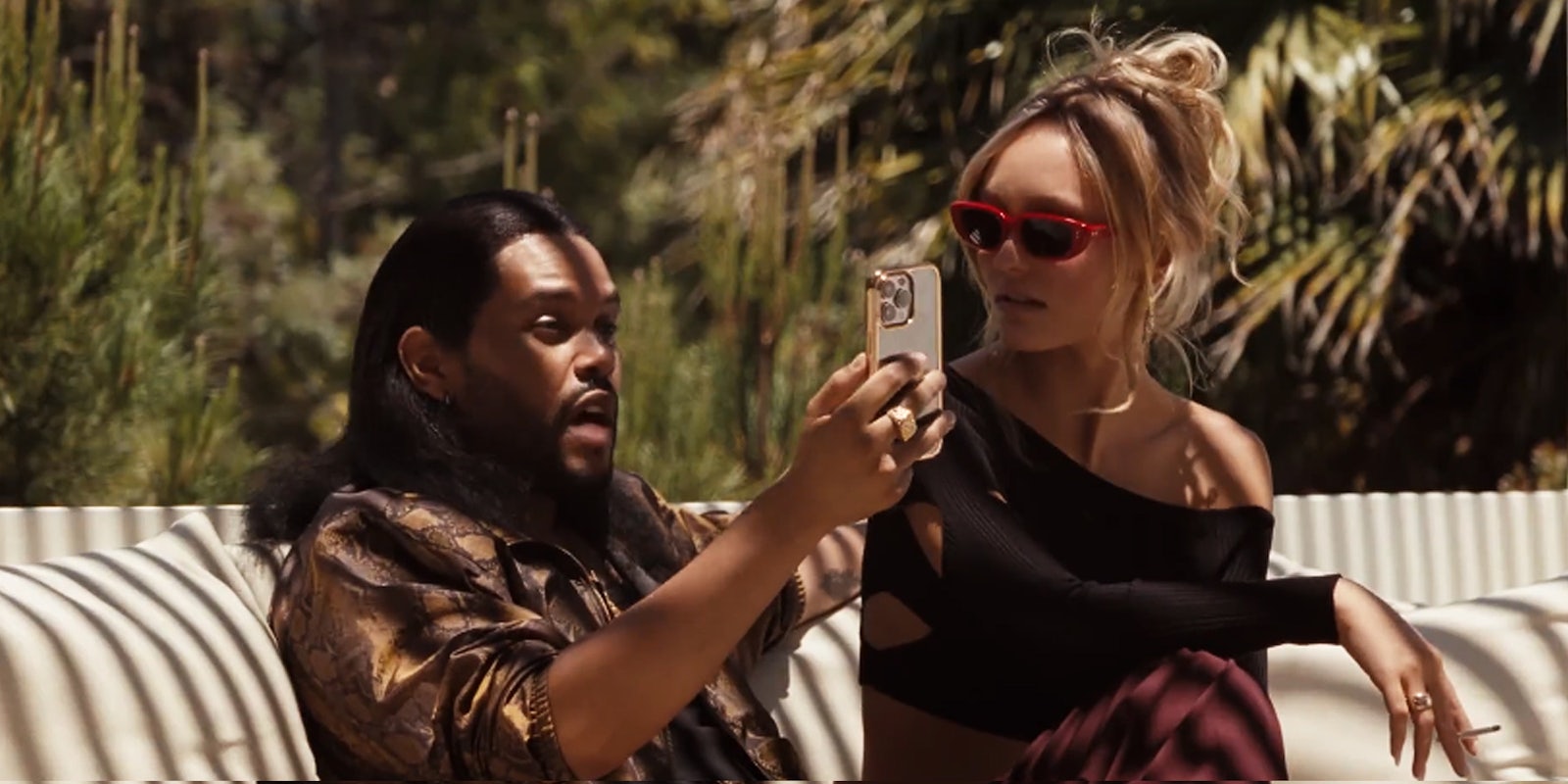Sam Levinson‘s new HBO drama The Idol is already mired in controversy, and lead actor The Weeknd certainly isn’t helping, making light of serious allegations around the show’s production process.
With a star-studded cast and the creator of Euphoria at the helm, The Idol is one of HBO’s most anticipated new shows. However, a damning new Rolling Stone article revealed troubling tales from behind the scenes, describing a chaotic production process—and problematic storytelling that insiders compared to “torture porn” and “rape fantasies.”
Starring Lily-Rose Depp and Abel Tesfaye (The Weeknd), The Idol is a Hollywood satire about a pop star (Depp) who gets sucked into a cult and embarks on a complicated, possibly abusive romance. The show’s original director was actor/filmmaker Amy Seimetz (The Girlfriend Experience), who left unexpectedly after filming 80% of the miniseries. Several actors left at the same time, and a report in Deadline alleged that Tesfaye—who co-created the show with Sam Levinson and Reza Fahim—was unhappy with Seimetz’s work because she emphasized “a female perspective.”
When Seimetz was still onboard, she reportedly had to film episodes with unfinished scripts from Levinson, with one source saying she was “doing her best in an impossible situation.”
After this creative conflict in April 2022, Levinson took over as director and reshot most of the show, leading to extensive delays and budgetary concerns. His new vision involved adding more violent and sexual content, with several Rolling Source sources expressing concern about him undercutting the show’s original message about abusive Hollywood culture.
Some of Levinson’s script drafts involved disturbing scenarios like Depp’s character being told to carry an egg in her vagina and then begging Tesfaye’s character to “rape” her—a scene that was apparently cut because the production team couldn’t figure out how to film the egg. (Downplaying these stories, HBO released a statement praising The Idol and saying that the show’s creators are “committed to creating a safe, collaborative, and mutually respectful working environment.”)
Unsurprisingly, this article prompted an explosive response on social media—especially in the light of prior criticisms aimed at Sam Levinson’s work on Euphoria. Meanwhile, Tesfaye fanned the flames with a flippant reply on Twitter, sharing a clip from The Idol where his character badmouths Rolling Stone.
This reply only makes Tesfaye look worse, because it frames a serious situation as a petty feud between a supposedly “irrelevant” publication and a popular celebrity. On Twitter, the reception to the clip itself is far from positive, prompting criticisms of “terrible acting” and “hubris,” and being “glib” about creating a show that “glorifies rape.”
The Rolling Stone report isn’t something you can just clap back at with a snarky tweet. It’s a heavily-sourced exposé about an allegedly chaotic workplace, making Levinson sound incompetent and disorganized at best, and accusing him and Tesfaye of firing a hardworking female director so the show could go in a less feminist direction.
These allegations also represent a crossover between two contentious topics in pop culture: Abusive power structures and Nepo Baby discourse.
After all, while Levinson has been hailed as a wunderkind for his work on projects like Euphoria, his career likely benefited from his father’s connections Oscar-winning director. And despite previous reports of unprofessional behavior while filming Euphoria, Levinson was still allowed to reshoot a mostly-finished HBO series at great expense, allegedly causing serious production issues in the process.
H/T to Rolling Stone



